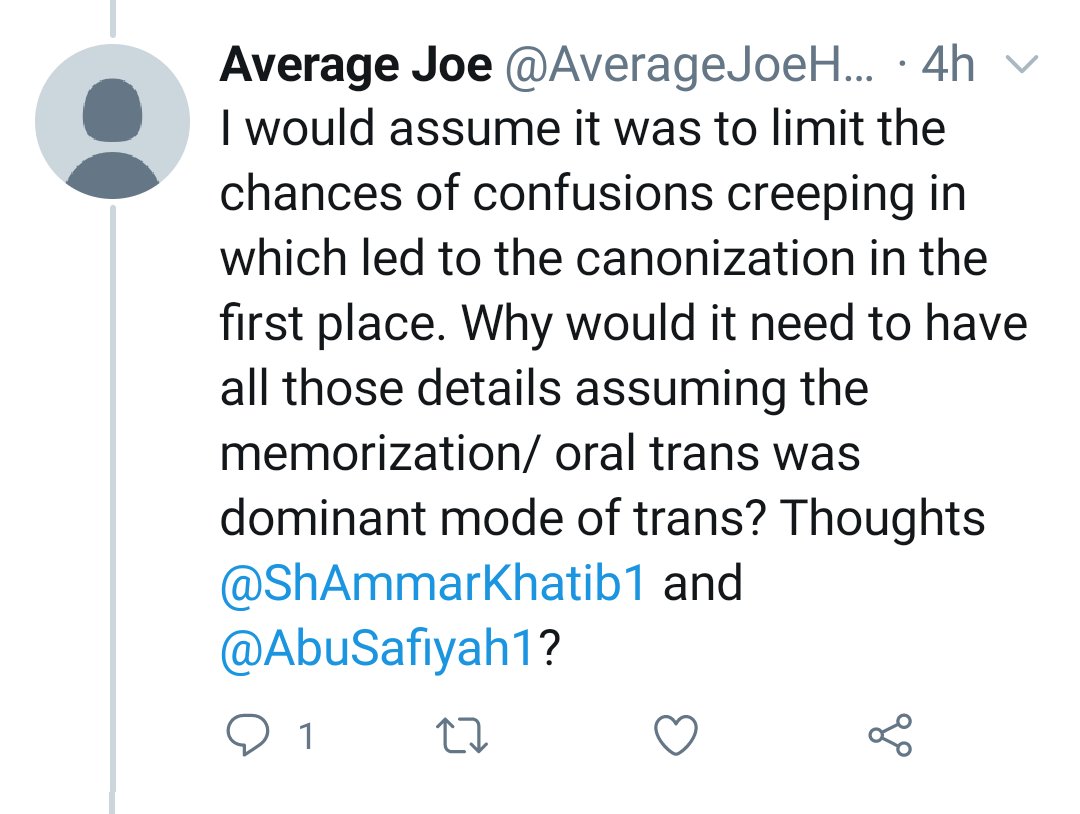
Educator | Arabic Linguist | BA in Islamic Studies & Arabic Literature, MA in Qur'anic Sciences | PhD Candidate
| Canada
4 subscribers
How to get URL link on X (Twitter) App


https://twitter.com/PhDniX/status/1612061925793488896I also encourage people to follow two giant Muslim scholars of Quranic Manuscripts:

https://twitter.com/PhDniX/status/14541766765235281961. The Qur'an was revealed in stages:

https://twitter.com/therealsidky/status/1418667335251075075It is true that we see scribal errors in Qur'anic manuscripts all the time. However, we are not talking about some random Qur'anic manuscripts. The 'Uthmanic Mushafs were the official copies of the government. This project was led by the third Khalifah himself.

https://twitter.com/joebradford/status/1273536395399831554The statements of Ibn Al-Jazari in his book Munjid Al-muqr'in can be contradictory.

https://twitter.com/ArabiEdris/status/13115761153754644491. We have reports about the companions seemingly criticizing or denying a Qur’anic reading.

 This is wrong. Some of the readers are classified weak in Hadith but certainly not all the readers.
This is wrong. Some of the readers are classified weak in Hadith but certainly not all the readers.


 First, I purposely don't comment on everything I read or everything people bring to my attention. Unfortunately, some people don't want to truly have a meaningful conversation.
First, I purposely don't comment on everything I read or everything people bring to my attention. Unfortunately, some people don't want to truly have a meaningful conversation. 
https://twitter.com/kandlewaster/status/1299436613450244097Regarding the readings going back all the way to the Prophet PBUH, we don't have Hadith-style narrations that the Prophet read/taught/approved every single word/variant.

https://twitter.com/BottldPetrichor/status/12971897300864573441. Some listeners were confused regarding the hadiths of the 7 ahruf and the possibility of contradiction with another hadith which was mentioned in the interview. The hadith stated that the Qur'an was revealed in 3 ahruf:

https://twitter.com/ArabiEdris/status/1275657663125377024In Arabic, we do have some cases where we have a meeting of two non-vowelled letters.


 1. We do have a few documented reports in the Islamic tradition about the companions seemingly criticizing or denying a Qur’anic reading.
1. We do have a few documented reports in the Islamic tradition about the companions seemingly criticizing or denying a Qur’anic reading. 
 @nahmood1800 @BrotherAlexP @abdullahadam For example, Imam Abu Shamah talked about the narration of the verses in Al-'hzab:
@nahmood1800 @BrotherAlexP @abdullahadam For example, Imam Abu Shamah talked about the narration of the verses in Al-'hzab: 
